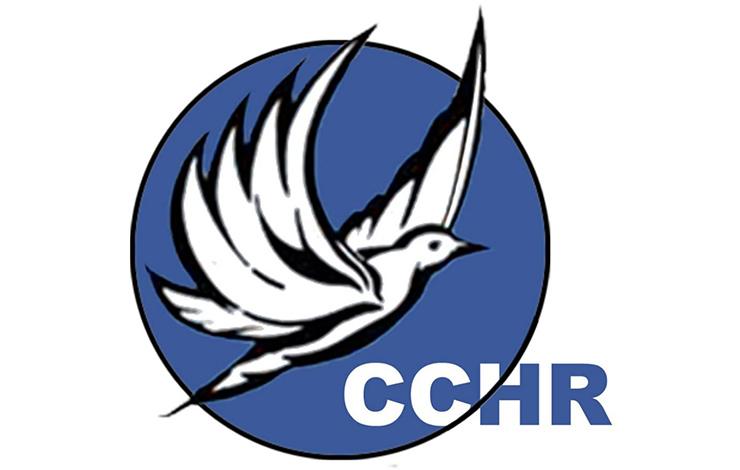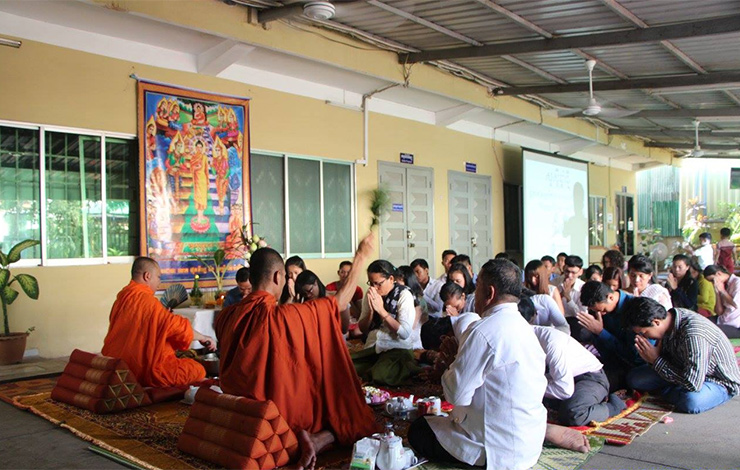
Cambodian Center for Human Rights
Due process of law in Cambodia suffers from poor separation of powers and the continued influence that the executive exerts on the judiciary. This program was designed to raise the general population’s interest in the judicial system, as well as, their awareness about fair trial rights – such as the right to be presumed innocent and the right to legal representation – by producing a series of video clips that can be easily shared on mobile devices.
Challenge

The functioning of the judiciary has been among the major human rights concerns in Cambodia for some time, particularly since a well-functioning judiciary is imperative to the rule of law. Cambodia's civil society and donor community have promoted legal and judicial reform for many years and although there have been steady improvements in the adherence to some of the procedures that underpin fair trial rights, significant progress has not been made. One of the major issues that continues to affect fair trial rights in Cambodia is the lack of separation of powers and the continued influence that the executive exerts on the judiciary. There is a widening gap between the guarantees and standards set out in the Constitution in terms of the status of the judiciary and the guarantee of fair trial rights. As this gap widens, the space for criticism and debate is shrinking, as the courts are used as political tools to silence opposition and dissent.
CCHR’s Trial Monitoring Project, first introduced in August 2009, monitors criminal trials in Cambodia to assess their adherence to Cambodian and international fair trial standards. The information collected through monitoring is intended first to serve as a reference to implement legal and judicial reforms and second, as a tool to bring about increased respect for fair trial rights. The priority issues the project have identified include the continued lack of independence of the judiciary including common political influence of the courts, high levels of pre-trial detention, disregard for the presumption of innocence, judges' failure to explain defendants’ rights, low levels of legal representation, and disregard for juveniles’ specific rights.
According to CCHR’s analysis, one of the main causes of the limited progress made in judicial reforms in Cambodia is that, despite the widespread dissatisfaction with the judicial system, ordinary citizens have not yet mobilized support for legal and judicial reform. Moreover, a challenging aspect of the promotion of an independent judiciary is the lack of trust in the Cambodian justice system and the lack of knowledge and understanding of individual’s right to a fair trial and their importance in ensuring greater respect for human rights and the rule of law. The lack of demand for reform from a varied and vocal section of the electorate seems to have contributed to the lack of responsiveness from the Royal Government of Cambodia.
Program Summary
The overall goal of the project was to improve the adherence to individuals’ fair trial rights in order to strengthen the independence of the judiciary and the respect for the rule of law in Cambodia. To achieve this goal, the Project had two main objectives:
- To build the capacity of the Cambodian people to demand the rights they are entitled to and guaranteed at the international and domestic level;
- To increase the awareness of the judiciary and the judicial process within the population to garner interest in the necessity for judicial reforms.
To achieve these objectives, CCHR's project produced a series of four short video clips on fair trial rights to serve as tools to build capacity and generate interest in the judicial system within the Cambodian population.The video clips focused on four specific trial rights:
- The right to be presumed innocent;
- The right to legal representation;
- The right to liberty; and
- Juveniles’ rights.
The video clips were between 5 and 12 minutes each. Footage included interviews with key stakeholders such as lawyers, judges, human rights defenders, former inmates, prison officials and CCHR teams. A detailed screenplay was developed in partnership with a videographer specifically hired for this project. CCHR organized a screening, along with a press conference, to launch the videos and share the videos with its broad network of partners. It also organized trainings on fair trial rights with specific relevant communities and different public screenings.
Impact
The issue of fair trial rights in Cambodia is complex and difficult to address in part because of the population’s distrust in the judiciary. As such, creating video clips on fair trial rights should help overcome these obstacles by making the issue accessible, understandable, and enjoyable. In addition, through the different ways the videos were disseminated, the project managed to reach out to a wide range of the population: rural communities through trainings, students through screenings at universities, youth and urban populations through social media and the media thanks to the organization of a press conference for the launch of the videos. The video clips have proven to be successful advocacy and capacity building tools, as well as a means to empower people in claiming their rights. Overall, by building the capacity of the population as well as their awareness on the issue, the project worked to ensure court officials and law enforcement officials are discouraged from violating an individual’s fair trial rights in the future and created a momentum for judicial reforms.
Partners
The CCHR Trial Monitoring Project developed cooperative relationships with the courts being monitored and the Bar Association of the Kingdom of Cambodia.

